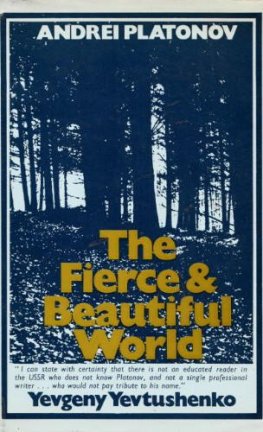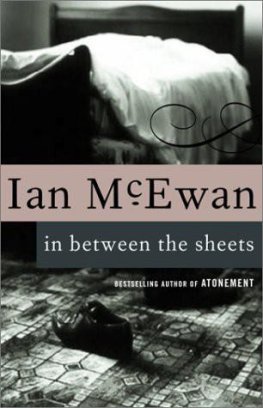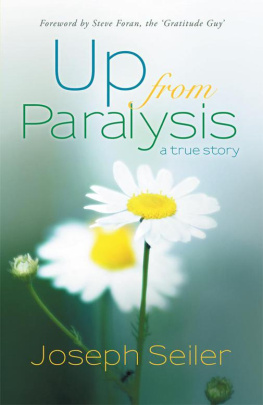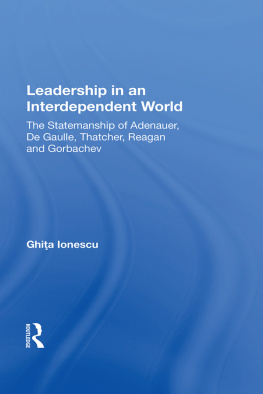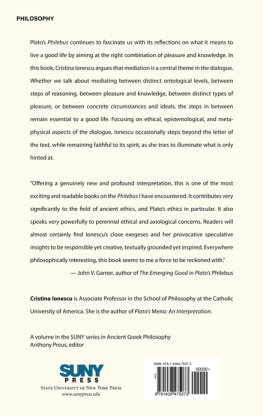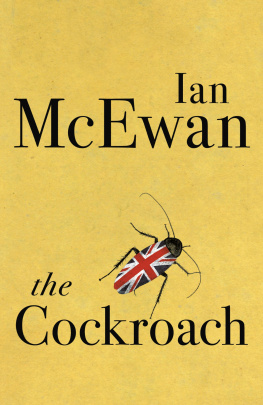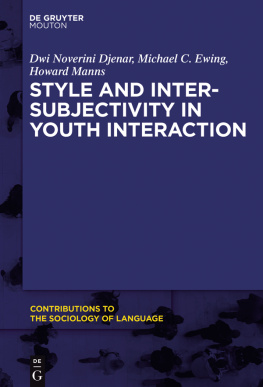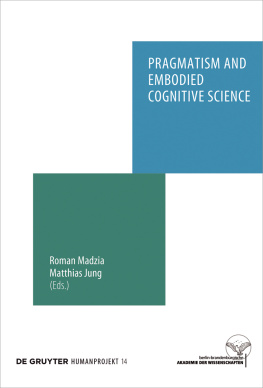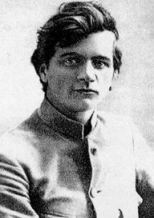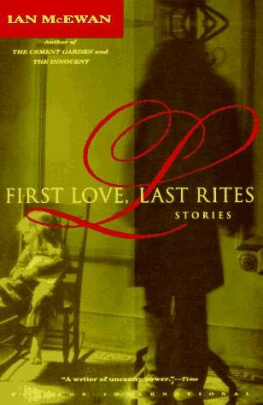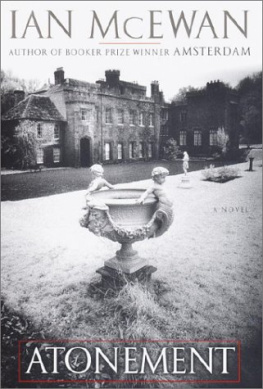Many thanks to Bernd Herzogenrath and Patricia Pisters, the editors of the thinking media series, and to Katie Gallof and Erin Duffy, publishers at Bloomsbury, for their invaluable assistance in bringing the book to its final form.
I would like to thank Barend Van Heusden and Liesbeth Korthals Altes, my professors from the University of Groningen, who played a fundamental role in both my professional and my personal development during my MA studies, and who taught me the value (but also the risks) of interdisciplinary and experimental thinking.
Annalisa Oboe, from the University of Padua, offered valuable advice on what paths my work could explore and took great care not to let me lose my way in the middle of my journey through the (often) dark woods of my research.
This book could not have existed, at least in its current form, without my discussions with Christopher Norris, an extraordinary scholar and human being, who taught me the intricacies of the unfathomable human mind, now beacon, now sea. I will be forever grateful for his support.
My gratitude goes to Ellen Spolsky, too, one of the founders of cognitive humanities, whose excellent books and articles have been fundamental for my understanding of human relations and their artistic renditions. In particular, her insightful analyses of failures of understanding in social interaction have been a great source of inspiration for this book.
I would also like to thank Marco Caracciolo, one of the keenest contemporary minds studying the relation between literature and science, for being open to discussions whenever I needed to clarify things. Many thanks to my philosopher friends, Bogdan Deznan and Mihai Ometi, with whom I discussed more things from heaven and earth than I dreamed about in this book, often in front of a beer or two, and to Andrei Mocua, an exceptional contemporary poet whose groundbreaking art incessantly inspired me. I would also like to express my gratitude to Martino Garonzi, a brilliant mathematician passionate about literature too, who helped me clarify many aspects of this book during our frequent meetings.
My deepest gratitude though goes to my family: my parents, Reli and Sorin, from whom Ive inherited the passion for literature and who continued to nourish it for many years; my grandmothers, Ana and Lena, to whom I always ran for shelter; my cousin Vlad, whose analytical mind combined with a deep understanding of literature helped me clarify some of my arguments; and last but definitely not least, my wife, Argitathe one who basked with me in the sun but also stood by me through the darkest storms.
Parts of this book are based on two previously published articles: A Manifesto Against Failures of Understanding: Ian McEwans Atonement , published in Critique: Studies in Contemporary Fiction , 1 August 2017, copyright Taylor & Francis, LLC, available online:https://doi.org/10.1080/00111619.2017.1347555; and The Success of Failure: Using Literature to Complexify Science, published by Padua University Press in the collective volume Forma Critica: Nuove Prospettive per gli Studi Letterari dagli Anni Zero (2018). I would like to thank Taylor & Francis and Padua University Press for their permission to draw upon these materials.
One possible and plausible, even if rather simplistic, way to characterize Ian McEwans work is by claiming that it consists of a series of literary investigations of various forms of pathology. From his first collections of short stories written in the 1970s to his latest novel, Machines Like Me (2019), the reader repeatedly stumbles upon pathological cases, ranging from sexual dysfunctions including sadism, masochism, or erotomania (and occasionally verging toward psychopathy, as in the short story Butterflies) to neurological disorders such as dementia or Huntingtons disease (to give just a very brief list of examples). This recurrent and obsessive concern with madness, or to put it less strongly, with deviance, brought him the (in)famous nickname of Ian Macabre and made critics like Kiernan Ryan characterize his work as an art of unease (cf. Ryan : 15).
Although no systematic and comprehensive study of pathology in McEwans works has yet been performed, it is not the aim of my study to do this either. Instead, what I plan to focus on are cases lying somewhere in-between mental health and full-blown psychopathology. In particular, I will explore two classes of phenomena creating failures of understanding in social interaction, which I will refer to as paralysis and invasion. As I will argue, both paralysis and invasion should be understood as disrupted forms of intersubjectivity, the former being characterized by a lack/deficiency of ways of relating to others, and the latter by an unnecessary surplus. One of my leading hypotheses is that paralysis and invasion are complementary both theoretically and experientially: since paralysis refers to a lack and invasion to a surplus, the two concepts are theoretically complementary; however, since paralytic ways of dealing with alterity often breed invasion during concrete social encounters, the two classes of phenomena are also experientially complementary.
By studying the literary representation of these phenomena in a selection of Ian McEwans literary works, I will shed more light on (1) the nature and functions of literature and (2) the structure of human relationships in general. This project can be considered, theoretically and methodologically, as part of the developing field of cognitive literary studies. In contrast to most of the research done in this field until now, though, my study not only aims to use calls a cognitive-thematic approach to literature, that is, an investigation of the metacognitive issues staged and reflected upon in literary works, I aim to challenge and refine contemporary cognitive and philosophical approaches to intersubjectivity and give directions for further theoretical and empirical research.
In the following section, I will discuss in more detail the theoretical and methodological underpinnings of a cognitive-thematic approach and situate it within contemporary literary studies. After discussing the figure-ground relationship characterizing literary interpretation in general, where interpretations (figures) can be placed in dialogue with different sets of theoretical frameworks (grounds), I will briefly summarize the ground against which I will place my interpretations of McEwans novels, that is, a set of developmental and philosophical accounts of intersubjectivity. I will argue that although these theories have already been used for explaining both successful cases of social interaction (e.g., empathy, emotional attunement) and highly pathological ones (e.g., autism, schizophrenia), they have not yet been employed in addressing cases lying between health and pathology, such as those I gather under the conceptual headings of paralysis and invasion. In the two major chapters of this study, by analyzing how (1) sexual breakdowns and (2) clashes of worldviews are staged and reflected upon in a selection of Ian McEwans works (the short story Homemade and the novels On Chesil Beach and Enduring Love ), I will argue that literary works can be used as intuition pumps (cf. ) in order to shed more light on aspects of intersubjectivity contemporary cognitive science and philosophy did not yet systematically address.


